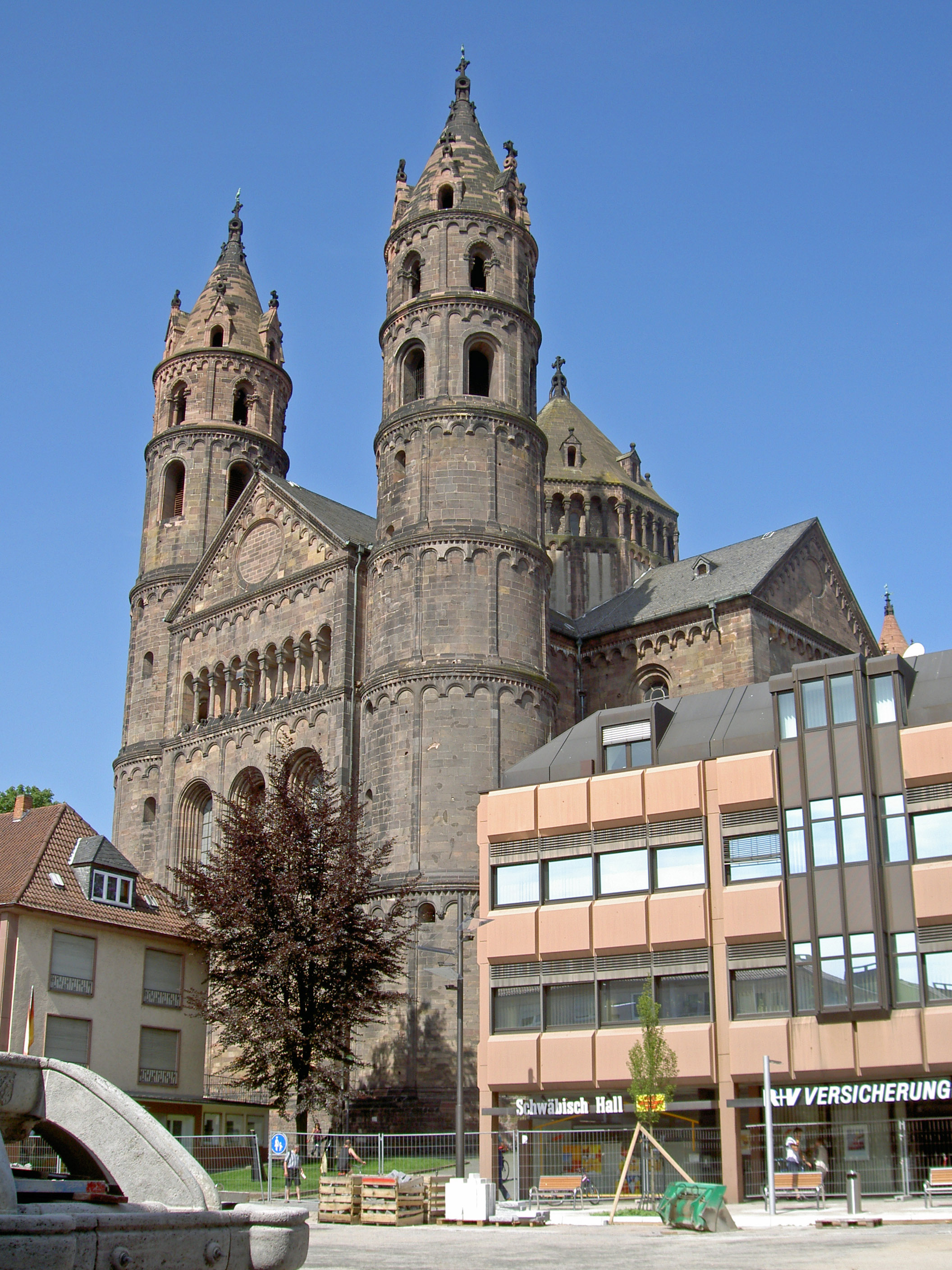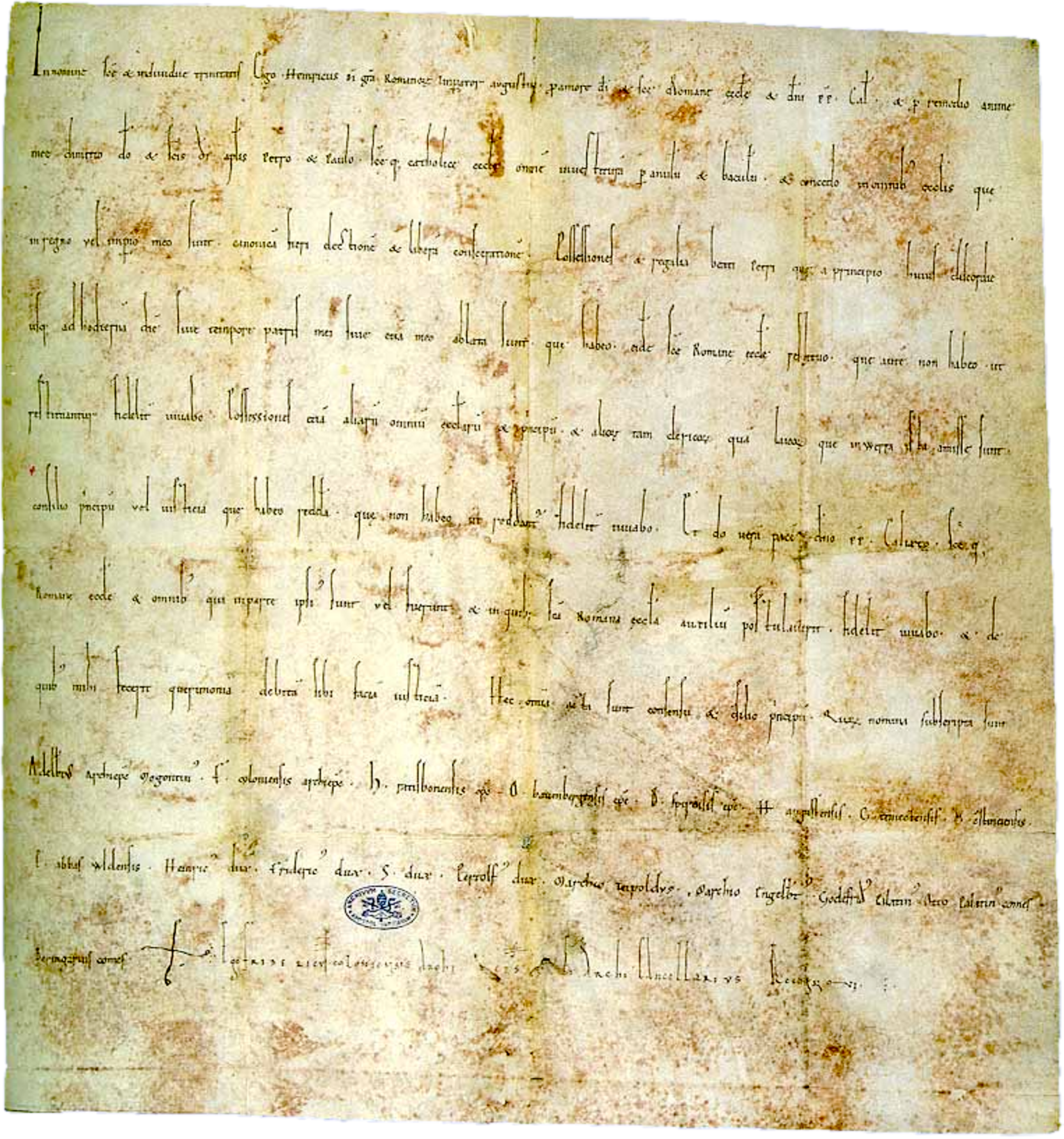|
Diet Of Worms (other)
Diet of Worms may refer to: Historic events Meetings of the Imperial Diet of the Holy Roman Empire in the city of Worms, Germany * Diet of Worms (1076) * Diet of Worms (1122) * Diet of Worms (1495), at which comprehensive reforms of the empire began * Diet of Worms (1521), at which Martin Luther was outlawed as a heretic * Other diets convened in the years 829, 926, and 1545. Media *Diet of Worms (comedy group) Medicine and science *A name for helminthic therapy Helminthic therapy, an experimental type of immunotherapy, is the treatment of autoimmune diseases and immune disorders by means of deliberate infestation with a helminth or with the eggs of a helminth. Helminths are parasitic worms such as hoo ..., a medical treatment for inflammatory bowel diseases See also * Worms as food {{disambig ar:اجتماع فورمس (توضيح) ... [...More Info...] [...Related Items...] OR: [Wikipedia] [Google] [Baidu] |
Imperial Diet (Holy Roman Empire)
The Imperial Diet ( la, Dieta Imperii Comitium Imperiale; german: Reichstag) was the deliberative body of the Holy Roman Empire. It was not a legislative body in the contemporary sense; its members envisioned it more like a central forum where it was more important to negotiate than to decide. Its members were the Imperial Estates, divided into three colleges. The diet as a permanent, regularized institution evolved from the ''Hoftage'' (court assemblies) of the Middle Ages. From 1663 until the end of the empire in 1806, it was in permanent session at Regensburg. All Imperial Estates enjoyed immediacy and, therefore, they had no authority above them besides the Holy Roman Emperor himself. While all the estates were entitled to a seat and vote, only the higher temporal and spiritual princes of the College of Princes enjoyed an individual vote (''Virilstimme''), while lesser estates such as imperial counts and imperial abbots, were merely entitled to a collective vote (''Kuriats ... [...More Info...] [...Related Items...] OR: [Wikipedia] [Google] [Baidu] |
Worms, Germany
Worms () is a city in Rhineland-Palatinate, Germany, situated on the Upper Rhine about south-southwest of Frankfurt am Main. It had about 82,000 inhabitants . A pre-Roman foundation, Worms is one of the oldest cities in northern Europe. It was the capital of the Kingdom of the Burgundians in the early fifth century, hence is the scene of the medieval legends referring to this period, notably the first part of the ''Nibelungenlied''. Worms has been a Roman Catholic bishopric since at least 614, and was an important palatinate of Charlemagne. Worms Cathedral is one of the imperial cathedrals and among the finest examples of Romanesque architecture in Germany. Worms prospered in the High Middle Ages as an imperial free city. Among more than a hundred imperial diets held at Worms, the Diet of 1521 (commonly known as ''the'' Diet of Worms) ended with the Edict of Worms, in which Martin Luther was declared a heretic. Worms is also one of the historical ShUM-cities as a cultural ... [...More Info...] [...Related Items...] OR: [Wikipedia] [Google] [Baidu] |
Diet Of Worms (1076)
The Synod of Worms was an ecclesiastical synod and imperial diet ('' Hoftag'') convened by the German king and emperor-elect Henry IV on 24 January 1076, at Worms. It was intended to agree a condemnation of Pope Gregory VII, and Henry's success in achieving this outcome marked the beginning of the Investiture Controversy. In 1067 Archbishop Guido of Milan, facing the rising forces of the ''pataria'' reformers in the city, gave up his see. He recommended the subdeacon Gotofredo da Castiglione his successor, who, however, was excommunicated by Pope Alexander II. While Henry IV appointed Gotofredo in 1070, the patarines elected Atto archbishop. Three years later Pope Alexander II died and was succeeded by Hildebrand of Soana, who named himself Pope Gregory VII. An ardent proponent of the papal supremacy over Henry's emperorship, he promoted the Gregorian Reform as expressed in the ''Dictatus papae'' of March 1075, including the principle that the papal title is unique in the world ... [...More Info...] [...Related Items...] OR: [Wikipedia] [Google] [Baidu] |
Concordat Of Worms
The Concordat of Worms(; ) was an agreement between the Catholic Church and the Holy Roman Empire which regulated the procedure for the appointment of bishops and abbots in the Empire. Signed on 23 September 1122 in the German city of Worms by Pope Callixtus II and Emperor Henry V, the agreement set an end to the Investiture Controversy, a conflict between state and church over the right to appoint religious office holders that had begun in the middle of the 11th century. By signing the concordat, Henry renounced his right to invest bishops and abbots with ring and crosier, and opened ecclesiastical appointments in his realm to canonical elections. Callixtus, in turn, agreed to the presence of the emperor or his officials at the elections and granted the emperor the right to intervene in the case of disputed outcomes. The emperor was also allowed to perform a separate ceremony in which he would invest bishops and abbots with a sceptre, representing the imperial lands associated w ... [...More Info...] [...Related Items...] OR: [Wikipedia] [Google] [Baidu] |
Diet Of Worms (1495)
At the Imperial Diet (Holy Roman Empire), Diet of Worms, Germany, Worms (german: Reichstag zu Worms) in 1495, the foundation stone was laid for a comprehensive reform (''Reichsreform'') of the Holy Roman Empire. Even though several elements of the reforms agreed by the Imperial Diet (Holy Roman Empire), Imperial Diet (''Reichstag'') at Worms, Germany, Worms did not last, they were nevertheless highly significant in the further development of the empire. They were intended to alter its structure and constitutional ordinances in order to resolve the problems of imperial government that had become evident. Background During the 15th century, it became increasingly clear that the Holy Roman Empire needed an imperial reform. Opinions varied, ranging from the restoration of the absolute imperial power to an Imperial Government (''Reichsregiment'') of the electors. One of many proposals, for example, was the ''Reformatio Sigismundi''. Almost all the reform proposals advocated an perpetua ... [...More Info...] [...Related Items...] OR: [Wikipedia] [Google] [Baidu] |
Diet Of Worms
The Diet of Worms of 1521 (german: Reichstag zu Worms ) was an imperial diet (a formal deliberative assembly) of the Holy Roman Empire called by Emperor Charles V and conducted in the Imperial Free City of Worms. Martin Luther was summoned to the Diet in order to renounce or reaffirm his views in response to a Papal bull of Pope Leo X. In answer to questioning, he defended these views and refused to recant them. At the end of the Diet, the Emperor issued the Edict of Worms (''Wormser Edikt''), a decree which condemned Luther as "a notorious heretic" and banned citizens of the Empire from propagating his ideas. Although the Protestant Reformation is usually considered to have begun in 1517, the edict signals the first overt schism. The diet was conducted from 28 January to 25 May 1521 at the Heylshof Garden, with the Emperor presiding. Other imperial diets took place at Worms in the years 829, 926, 1076, 1122, 1495, and 1545, but unless plainly qualified, the term "Diet of Worm ... [...More Info...] [...Related Items...] OR: [Wikipedia] [Google] [Baidu] |
Diet Of Worms (comedy Group)
Diet of Worms is an Irish comedy and theatre group based in Dublin, Ireland and London, UK, made up of Rory Connolly, Philippa Dunne, Niall Gaffney, Shane Langan and Amy Stephenson. They write and perform sketch and character comedy for stage and screen. History The group took their eponymous first show to the Edinburgh Festival Fringe in 2006, only a month after their first live performance together at Dublin's Battle of the Axe comedy club. In 2007, they took "Diet of Worms on (Melted) Ice", a sketch comedy show performed in a swimming pool, to Edinburgh. They also began to release short mockumentary films online as part of a series entitled "Dublin Stories". The films were a collaboration with filmmakers Alex Gill and Michael Donnelly and were short portraits of odd Dublin characters, created and performed by one or more of the Worms at a time. This was later commissioned by RTÉ to be developed into a half-hour pilot which RTÉ aired in January 2009. Their 2008 live sketc ... [...More Info...] [...Related Items...] OR: [Wikipedia] [Google] [Baidu] |
Helminthic Therapy
Helminthic therapy, an experimental type of immunotherapy, is the treatment of autoimmune diseases and immune disorders by means of deliberate infestation with a helminth or with the eggs of a helminth. Helminths are parasitic worms such as hookworms, whipworms, and threadworms that have evolved to live within a host organism on which they rely for nutrients. These worms are members of two phyla: nematodes, which are primarily used in human helminthic therapy, and flat worms (trematodes). Helminthic therapy consists of the inoculation of the patient with specific parasitic intestinal nematodes (or other helminths). A number of such organisms are currently being investigated for their use as treatment, including: ''Trichuris suis'' ova, commonly known as pig whipworm eggs; '' Necator americanus'', commonly known as hookworms; '' Trichuris trichiura'' ova, commonly referred to as human whipworm eggs; and '' Hymenolepis diminuta'', commonly known as rat tapeworm cysticerci. Whil ... [...More Info...] [...Related Items...] OR: [Wikipedia] [Google] [Baidu] |
Worms As Food
Insects as food or edible insects are insect species used for human consumption. More than 2,000 insects species worldwide are considered edible. However, a much smaller number is discussed for industrialized mass production and partly regionally authorized for use in food. Common forms of consumption are whole insects on the one hand, and pulverized insects that are used as an ingredient in dishes or in processed food products such as burger patties, pasta, or snacks, on the other hand. Edible insects Frequently consumed insect species Estimates of numbers of edible insect species consumed globally range from 1,000 to 2,000. These species include 235 butterflies and moths, 344 beetles, 313 ants, bees and wasps, 239 grasshoppers, crickets and cockroaches, 39 termites, and 20 dragonflies, as well as cicadas. It is estimated that more than 2 billion people eat insects daily. Which species are consumed varies by region due to differences in environment, ecosystems, and clima ... [...More Info...] [...Related Items...] OR: [Wikipedia] [Google] [Baidu] |




.jpg)

